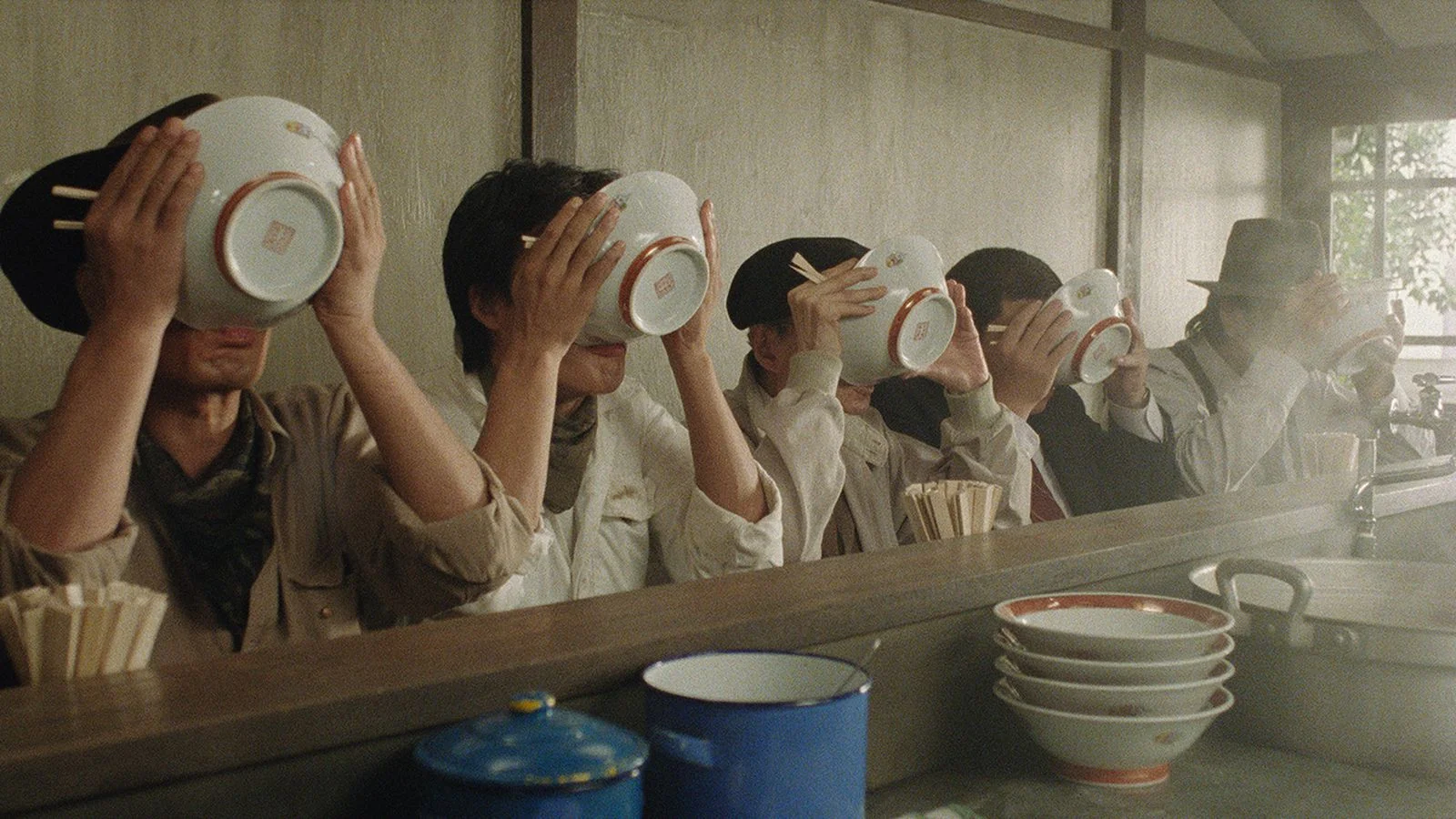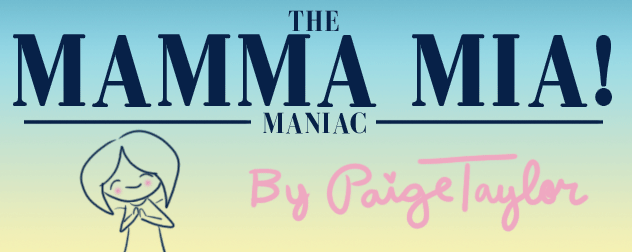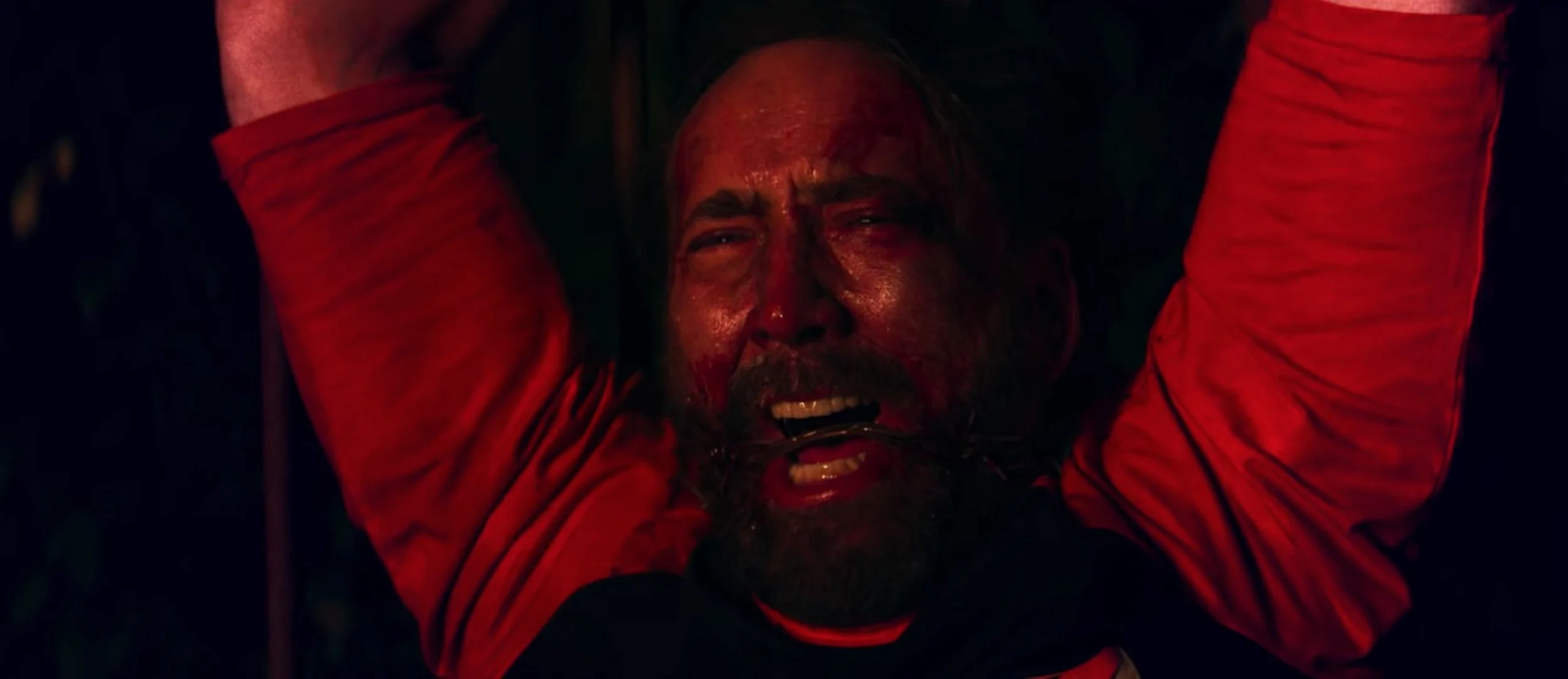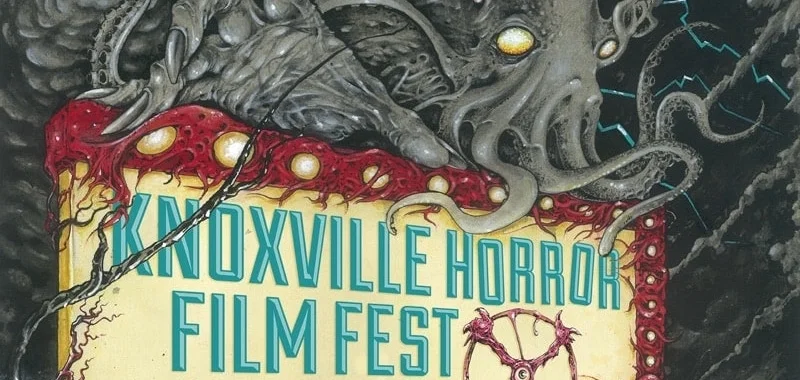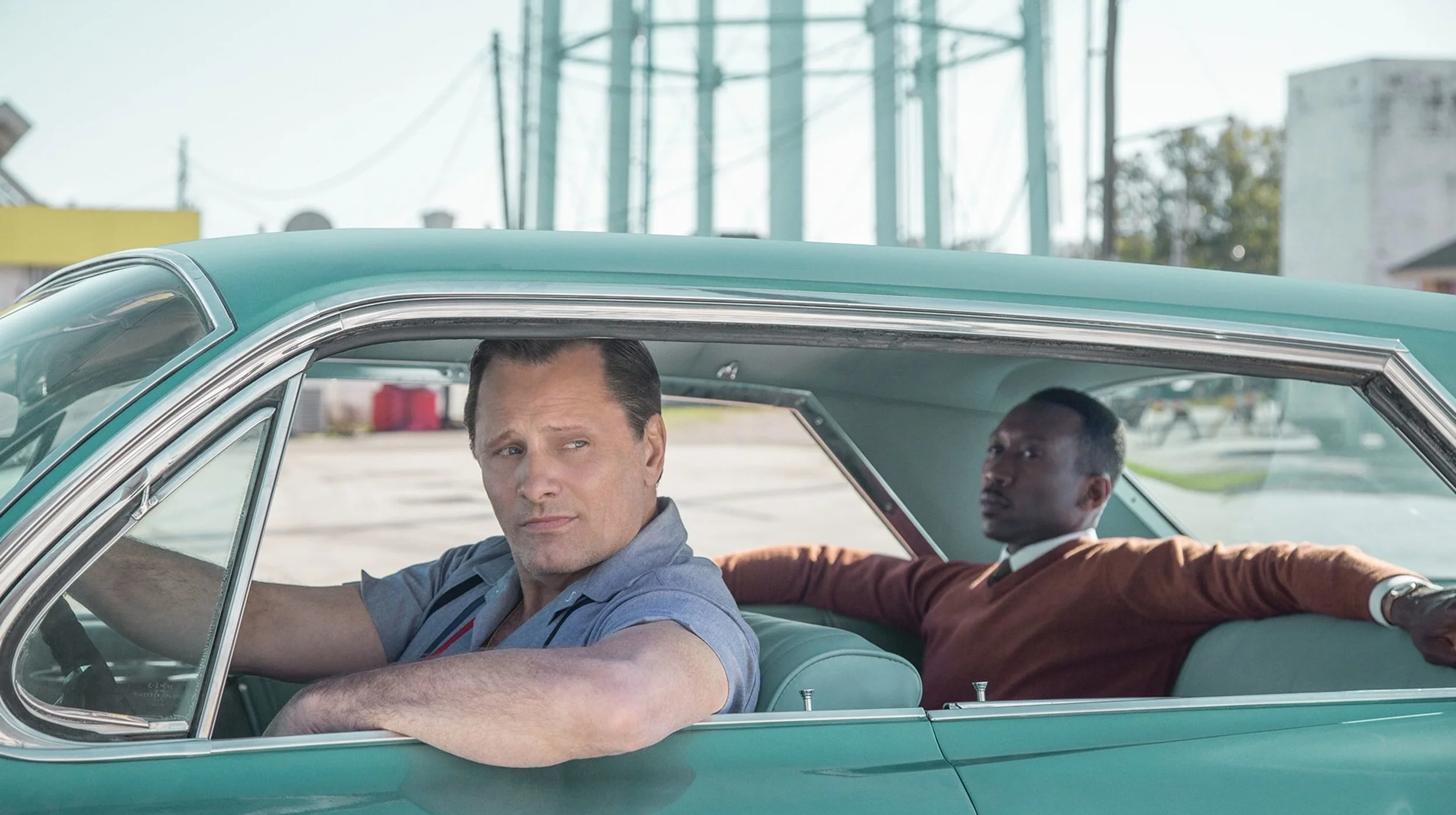Andrew here. You’re about to read a list of the best writing Cinematary did in 2018, but before you look over it, I’d like to tell you about how we got to this point.
Dylan Moore and I were student organizers of something called UT Cinema Club, which met every Monday night to show movies for free on the University of Tennessee campus. Out of the blue, we were contacted by a journalism student named Zach Dennis who wanted to write a piece on our club. We were flattered, and got together for coffee and an unexpected amount of friendly conversation about the movies we liked from the previous year. The piece that Zach ended up writing is still on the internet, by the way, and you can read it here.
A little while later, Zach asked Dylan and I if we’d like to get together for some type of radio program. We reluctantly agreed, not really knowing what that meant: would we be live on the air? Talking about what? It turned out to be an extension of the conversation that didn’t make Zach’s article but was nonetheless worthwhile: what movies did you like last year, and why? We met up in a small study room–which we were swiftly kicked out of–and recorded the first episode of what would become Cinematary.
In the early days, it was sort of an experiment in podcasting for the UT School of Journalism and also sort of a marketing strategy for the UT Cinema Club–at the end of every episode, we’d announce what film was being screened that week. We snuck into empty computer labs to record and put out a new episode every Friday, exclusively on Podbean.
We weren’t very good, and I don’t recommend listening back to those early episodes (you can, of course). A few years ago, I made a personal project of listening to the backlog and tracking the movies we discussed for our Letterboxd account, but I had to give it up because I couldn’t stand listening my own verbal tics and obviously uninformed opinions any longer.
Things improved dramatically, of course, as we brought more contributors to the table. Lydia Creech–Cinematary’s real MVP–joined as early as Episode 4 despite her own sense of shyness, and over the years has both encouraged us to seek out more classics and inspired us to give zero fucks about preexisting cultural attitudes towards supposedly “genius” asshole artists. Nadine Smith came shortly after, and brought with her a hunger for all things critical theory and an explosion of the lines between supposedly “high” and “low” art. As the project grew, and as more people were willing to be involved, we increasingly challenged each others’ viewpoints and biases and became better critics (and, I’d argue, better people) in the process.
For example, Zach and I didn’t get along for the first several episodes of the show: he thought my feminism was a bit too overbearing, and I, like the snob I was, found his love for rom-coms and superhero movies to be way too pedestrian. We’ve both changed a lot: he’s out here writing about challenging masculinity norms and I’m out here defending Fifty Shades of Grey.
The project has changed a lot with us over the years.
The first big change was a major pivot in terms of what the show was for. In the first 40 or so episodes, we were just doing what most amateur movie podcasts do: sharing the movies we liked with one another. But admiring your own hipness can only take you so far, and the show had to become something else–so the Young Critics Watch Old Movies series was born as an effort for the show to become an educational experience. We liked to think we were big movie buffs, but we really didn’t know much at all about stuff made before we were born–and our desire to learn became a new, guiding philosophy for whatever this thing was.
Another big step was being noticed by Darren Hughes of The Public Cinema, who has become somewhat of a mentor for the group.
We had no idea who this dude was and had never been contacted by a listener before. <3 u Darren
Darren pushed us to do a series on film criticism, hooking us up with some great guests (Calum Marsh and Girish Shambu) and inspiring us to do some written criticism ourselves. That led to the launch of cinematary.com, which dramatically changed the nature of the Cinematary project. In the years since, Darren has called us out when we were phoning it in, as well as encouraged us to broaden our horizons into the world of festival coverage (another huge step).
As a platform for longform writing, Cinematary has developed into an even larger and more diverse community of critics seeking to articulate their thoughts on why movies matter–both to us personally, and to the world more broadly.
At the end of 2017, we got together to discuss the future of the Cinematary project and decided on two New Years Resolutions: (1) we wanted to publish every week, no matter what–just as we put out a new podcast every Friday; (2) we wanted to cover film festivals just the same as professional critics did. We’ve accomplished these goals, publishing 85 written pieces over the course of the year (over double the 35 pieces we published the previous year) and covering 6 film festivals both local and international. It has been our best year ever.
This is a side-gig for all of us here at Cinematary. Everything you’ve heard or read from us has been a labor of love. I am incredibly, unexplainably proud of all the work done by my friends and peers for this site over the past year, which is why I’ve compiled the list you’re about to read: our best writing of 2018.
It is not merely a list of movie recommendations.
This list includes video essays that took months to construct, festival coverage that required dozens of hours and thousands of words, powerful essays about writers’ personal identities and societal oppression, formalist analysis working out how movies are crafted visually, sharp critiques of the capitalist superstructure that the movie industry works within, a whole article structured around homemade .gifs, and much more.
We hope you take some time to explore this list and catch up on some of the writing you may have missed this year. It would mean the world to us.
- Andrew Swafford
PS - We have big plans for 2019, including (but not limited to) bringing a lot of new voices to the table. Our first new contributor, Logan Kenny, even has a piece at the end of this list! There’s a lot more where this came from. Keep checking in with us! <3
Zach Dennis on The Quiet Man
“What is so effective in The Quiet Man is less the plot by plot beats that these characters follow — we can expect the path taken by Sean and Mary Kate, and how the climax with Will would eventually transpire — but by the complexions of their color. Mary Kate seems much more adherent to a pattern of red and orange — a complexion that generally defines as corresponding with ‘domination, aggression and a thirst for action.’ Sean is generally filmed with a bluer texture, generally associating him with confidence, intelligence, truth and trust.” Read More
Bloomington PRIDE Film Festival coverage by Lydia Creech and Taylor Thomas
“I didn’t feel tokenized, I felt victimized. I thought maybe we were past this. This isn’t to suggest that the violence LGBTQ+ individuals face isn’t still happening every day – I recognize that some of these things are still very big problems. However, that’s kind of my point. We know that. Coming into a festival with Pride in the title, I was expecting (or at least hoping) to feel excited, empowered, at home with my community. And, apart from the few excellent films I’ve discussed here, I just didn’t.” Read More
Zach Dennis on Creed (and the filmography of Ryan coogler)
“Coogler’s films function as a rallying cry for millennial-age masculinity — displaying that legacy can still carry the machismo pleasures of generations past (such as boxing), but at the same time, still allow for a more whole and emotionally aware self.” Read More
Andrew Swafford on the Fifty Shades franchise
“As a culture, we (men and women) seem to have a knee-jerk sense of superiority towards anything that feels obviously branded as “girls’ stuff” unless it is presented in an already masculine framework (see: Wonder Woman). Twilight [along with its offspring, Fifty Shades] is perhaps the 21st century’s apotheosis of “girls’ stuff”…multiplexes offer a platform for new male fantasies every single week--but we have seen no such mean-spirited takedown of the superhero genre for obvious reasons.” Read More
Jordan Collier on Annihilation
“With the release of Annihilation, Garland sets his sights on a much more ambitious sci-fi outing. The endeavor pays off in brilliant ways, but I can’t help but think that Garland’s characters suffer due to this grander scope. Thankfully, the themes and imagery are strong enough to stay with you well after you leave the theater.” Read More
Michael O’Malley on Big Ears Stereo Visions (or: How I Learned to Stop Worrying and Love the Third Dimension)
“Abstraction is what digitization does to the movies in general. The film object has transitioned from celluloid, which contains literal physical images, to VHS tape, which keeps the basic mechanisms of celluloid but abstracts the images into digital data, to DVD and Blu-ray discs that abstract the traditional film paraphernalia of reels and tape, to digital download and streaming that abstracts any physicality at all…Please don’t take this for doom prophecy; this abstraction has led to an unprecedented amount of democratization in media distribution, which is awesome. But it also distances us from the physicality that has been a major component of movie viewing for the majority of film history.” Read More
Zach Dennis on Unsane
“There’s something telling about the film’s message that the only way to combat social media or cyber harassment is to completely dispel it from your life. As if the only way to avoid this type of harassment and invasive activity is to not engage with the Internet at all. It seems like an extreme measure, but one that becomes more understandable in a week marred by news surrounding Facebook pulling user data and the ever-present role of Russia hackers in social media around the time of the 2016 election. The only safe way to be online is to not be online at all.” Read More
Zach Dennis on Ready Player One
“While Wonka embodied this reclusive genius hiding behind mighty gates, this concept doesn’t necessarily translate to 2018 as well as it did in 1971 when the movie came out. The manner of industry has changed in such a way that the idealistic shadow leader is non-existent as it was in the sense of Wonka. Instead, Halliday is more akin to someone like Mark Zuckerberg, a man with infinite power and overflowing with ideals that speak to a unifying force, but ultimately lead to hollow promises.” Read More
Big Ears Festival Coverage by Michael O’Malley and Andrew Swafford
“Something like Goodbye to Language…doesn’t even really ask you to get it because of how much you can appreciate the film’s sense of play as an end unto itself…And as somebody who’s attended every Big Ears festival since they were revived in 2014, that’s the mindset that I’d recommend people bring to the festival (and this goes for music too). You may not recognize every name on the lineup and you may not like everything you attend, but if you have an open mind (something something big something something ears), you’re inevitably going to find stuff that is just delightful and/or moving on some non-verbal, instinctual level.” Read More
Lydia Creech on The Death of Stalin
“For me, black comedy works best when dealing with totally unsympathetic characters. Characters being so nakedly ambitious and callous can and should be made to look ridiculous, but also their actions created real world misery…It’s not that the men who worked for Stalin were evil cartoon villains, but just horrible, petty people in a way that becomes truly disturbing in light of the fact that horrible, petty people get into government work all the time. Black comedy exists to shine a light on such human ugliness, and we may laugh but also get a twisted feeling in our guts from recognition.” Read More
Chattanooga Film Festival Coverage by Zach Dennis
“Over the past few years, Chattanooga has started to sow some roots in a cinema community that was something we didn’t have while we were living in the city. It probably coincides with the recent emergence of the city as an artistic hub, not to mention the massive growth in population that correlates with the strong turn in the economy and an influx of jobs entering the area. Either way, the Chattanooga Film Festival has carved out a nice niche for itself.” Read More
Malcolm Baum on Blockers
“One of the most interesting ideas espoused in the film’s narrative is the difference between having progressive values versus actually putting them into action. Lisa, Mitchell, and Hunter all seem to have basic middle class liberal beliefs, but they go straight out the window when they discover their daughters are about to explore sexuality.” Read More
Andrew Swafford on A Quiet Place
“On the one hand, you can give A Quiet Place a boring, flat, but ultimately harmless reading: it’s about parents who have to sacrifice for children (basically just the definition of parenting). But, on the other hand, as a post-apocalypse movie, it invites you to believe that it’s saying something about society...If you give this post-apocalypse movie the standard post-apocalypse movie reading (what causes society to break down, and what happens when it does?), this is a rural conservative / evangelical / doomsday-prepper / homeschooling /quiverfull-parent fantasy--one in which individual frontiersmen must uphold order after America's military has been rendered tragically powerless.” Read More
Courtney Anderson on Avengers: Infinity War
“Infinity War tells the audience, “Hey, all that stuff that you’re super into and really enjoy? Haha, yeah, we’re gonna dick around with that. But, don’t worry, it’ll be fixed because Marvel’s already got their film schedule for the next 10 years.” It’s hard to really feel something when you remember which characters have sequels and which actors have signed multi-picture deals.” Read More
Jessica Carr on I Feel Pretty
“I think the film is smarter than people are giving it credit for. It isn’t just about promoting this message of, “It is what’s on the inside that counts.” I think it is also saying that universally, everyone suffers from some sort of self-esteem problem. It doesn’t matter if you are the sexiest person alive--you are probably going to dislike some aspect of yourself. Critics were really hating on the fact that a man co-wrote and co-directed this film about female beauty standards, but I’d argue that this film isn’t just for women.” Read More
Nashville Film Festival Coverage by Andrew Swafford and Jessica Carr
“As out-of-towners with full-time jobs, our options were limited. As a result, we didn’t get to see my most anticipated movies of the fest (Eighth Grade and First Reformed), we had to pass over some of the festival’s many trademark music documentaries (though Nashville certainly showed up for If I Leave Here Tomorrow: A Film About Lynyrd Skynyrd), we weren’t able to see any of the repertory screenings (which included Rosemary’s Baby and Jurassic Park) and we weren’t even able to see the film screening of Qwerty by Cinematary’s own John McAmis — who won an award!” Read More
Lydia Creech on On Chesil Beach
“Asexual audiences probably already know not to expect better, but I worry the general public will walk away thinking this scenario was a balanced argument and portrayal of an asexual character attempting to navigate (or not) a sexual relationship. Unfortunately, the whole thing feels like the author and screenwriter Ian McEwan looked up the definition yesterday and then crafted a narrative about how this affects Me, The Straight Male Partner/Authorial Stand In.” Read More
Jessy Alva on Hereditary
“Molly Shaprio’s Charlie is undoubtedly the most underserved character of the film. We’re clearly supposed to view her as weird--always wearing a large jacket, refusing to sleep in her own bed, inappropriately and irritatingly always tongue-clicking, never quite able to communicate the depth of her feelings to others. But why? Are we supposed to deduce from her deformed face that she has some kind of intellectual disability? This is implied at times, but never confirmed, which then leaves the film guilty of committing the fallacy: intellectual disability = weird. We don’t get to see her as a human; we simply see her as a creepy little girl who gets on everyone’s nerves.” Read More
Jessica Carr on Tampopo
“Whether you view it simply as a necessity needed to live or as something to truly be treasured, we are all connected by food. That’s why it was a work of genius in 1985 for Juzo Itami to create a Japanese film that uses food as a way to meditate on human behavior. In Tampopo, food is the thread that connects together the different ideas Itami is trying to communicate.” Read More
Nadine Smith’s 2018 Shmight & Shmound Poll
“I had no idea how big [this poll] would get or how quickly it would snowball. By the end of the day, I had received hundreds of ballots – some from old friends, many from strangers I had never interacted with. Last year around 800 films received nominations; this year, over 1700 did. In 2016, our number one film received only 9 votes. In 2017, the number one film on the list received 20 votes. This year, our number one contender received 99 votes in total. The total size of the list has increased from 85 to 300.” Read More
Michael O’Malley on Sorry to Bother You
“The future is not, to quote another Detroit slogan, female ejaculation; the future is a world in which the richest companies on the earth--the tech companies--have become both so morally bankrupt and so necessary to modern life that virtually every one of our everyday decisions is a deal with a digital Mephistopheles, who both engineers whatever standard of living we’re calling ‘livable’ while at the same time turning it into a pyramid scheme propped up by slavery.” Read More
Published July 17th
Andrew Swafford’s Video Essay on Guns in Horror Movies
“In the earliest days of cinema, we were afraid of onscreen guns. The Great Train Robbery, released in 1903 ended with this image. When audiences saw that in a theater, they ducked. The Great Train Robbery did to early moviegoers what the Parkland image does to me today: it forced the audience’s perspective into a simulation of death-by-gun. But the image doesn’t quite have the same scare power today--and I don’t think it’s just because we know how fake it is.” Watch Here
Paige Taylor on the Mamma Mia! franchise (featuring homemade .gifs)
“The sheer level of enthusiasm and energy everyone exhibited actually reminds of the war boys from Mad Max: Fury Road (2015). The thing about the war boys is that all of them are ready to die in battle but they’re so fucking hype about it that you can’t help but feel like screaming, “WITNESS ME!” with them. Mamma Mia! puts out that same level of vigor except you aren’t yelling about wanting to die historic on the Fury Road, you’re yelling because you’re the dancing queen, young and sweet, and only 17.” Read More
Reid Ramsey on hillbilly
“In the midst of uncovering the truths behind the southern stereotypes purported by the media (the movie notably shows clips from The Simpsons and other American staple TV shows), Donald Trump runs for office and is elected President of the United States. Many of the best documentaries happen by pure chance, and much of the documentary takes a right turn into Ashley discussing politics with her family.” Read More
Andrew Swafford on Eighth Grade
“Despite 2018 being the year that “desktop thrillers” are officially becoming a thing, the most extremely online film of the year is surely Eighth Grade: it's directed by a former teenage YouTube celebrity, the film’s poster is obscured by an out-of-focus iPhone (mid-selfie), the first and final shots consist of MacBook Air webcam footage, and the credits play over a behind-the-glass close-up of a softly glittering LED screen.” Read More
Nadine Smith on Support the Girls
“Support the Girls is one of the few movies I have ever seen—maybe the only one—about the weird liminal space occupied by managers, who represent the boss and enforce his words but are still subject to the same bossing around as regular employees. Managers are an intentional tool of alienation between employees and owners. They create distance, preventing employees from addressing their concerns with those immediately responsible for them. But they also create conflict, which means employees are too busy bickering with their managers to question the assumed authority of the owner class.” Read More
Jordan Collier on The Night is Short, Walk on Girl (with .gifs!)
“Something this mercurial and wonderful begs to be seen rather than described. It defies traditional categorization. It is an experience packed with so much color, heart, originality, and unbridled positivity that it makes impossible to stop smiling. Night is Short is a whirlwind of epic proportions, and it is one worth getting swept up in.” Read More
Courtney Anderson on Sierra Burgess is a Loser
“If fat people do show up in media, they are mostly stereotypes: lazy, gluttonous, dimwitted. They are often the supportive/sassy friend who have no life of their own. And they never have romantic interests. Beyond it being damaging to constantly consume anti-fat media, it also gets boring after a while. I’m always waiting for the movie where there’s a fat girl that actually does have a love interest, or at least isn’t spending the entire movie commiserating her weight. Which is what I thought Sierra Burgess Is A Loser would be. And it wasn’t. At all.” Read More
Lydia Creech on Mandy
“The joke turns rely on (proudly) Shitlord Internet Denizens going in knowing Cage’s weirdo star persona and then that being sufficient enough to draw laughter (I mean, it seemed to work?). I think what was so miserable to me about the second half was the obviousness of the overtures to the audience. No longer was I being brought in by inviting images or the foreboding mood; instead, what was happening onscreen was annoying and alienating.” Read More
TIFF Coverage by Zach Dennis, Andrew Swafford, and Lydia Creech
“My main takeaway is just how many films there are to see at TIFF — and how few actually garner much discussion among cinephiles. Scrolling through my Twitter feed of film critics and enthusiasts, I saw a lot of hot takes about High Life, American Dharma, and Halloween (among others), but not a peep about most of the titles I saw.” Read More
Including reviews of:
Re-Fear: essays on Horror Sequels and Remakes
“If, as our own Andrew Swafford has described them, horror movies are “laboratories for processing fear,” sequels, remakes, and reboots attempt to reconduct the experiments, exposing old formulas to new elements….Like zombies, series of horror movies mutate and evolve based on their current environment and the conditions they’re exposed to. Old frameworks give us a different perspective on current problems, and some stories compel us to revisit them under different parameters. Even the most cynically-produced, crassly commercial horror movies—in their direct engagement with what scares us—can reveal something worth knowing about the cultural context in which they were produced.” Read More
Essays include:
Film Twitter’s Favorite Horror Films (2018 Edition), a poll by Mike Thorn
“I intentionally left the term “horror” open to interpretation, but the boundaries and conditions of genre definition have fascinated me for some time. Some users submitted titles that would under most circumstances never be described as “horror” (everything from Dunkirk [2017] to Apocalypse Now [1979] to Ernest Goes to School [1994]), while others publicly questioned the validity of titles that I would argue clearly meet all possible criteria (for example, Jaws [1975], Eraserhead [1977] and The Witch [2015]).” Read More
Knoxville Horror Film Fest Coverage by Jordan Collier and Andrew Swafford
“We’ve been partners in horror-cinephilia for years now, but interestingly, we tend to disagree more often than not on what works and what doesn’t in the genre. Maybe that’s just symptomatic of horror fans in general tending to have pretty passionately combative opinions — it’s an inflammatory genre, no matter which way you slice it.” Read More
Published October 31st
From Caligari to LAIKA, a Video Essay by Zach Dennis
“Esther Leslie calls animation the “possibility of possibility” and with both stop-motion and Expressionism this possibility is realized in the “absolute” sense…transcending the lines and volume of the natural yet still participating in the natural world.” Watch Here
Courtney Anderson on Green Book
“Peter Farrelly’s Green Book uses vital pieces of Black history as plot devices to tell the story of a loud-mouthed racist who learns to be less racist because of that time he became friends with a cool Black guy.” Read More
Michael O’Malley on Ralph Breaks the Internet
“It doesn’t take much work to draw the line from David Foster Wallace’s insight into television to what’s going on vis-à-vis Disney and Ralph Breaks the Internet’s Oh My Disney sequence. Disney voices clever critiques of its own films, thereby letting us viewers feel both validated for being smarter than those older, stodgier, sexist-er movies (“yeah, there are a lot of princesses whose problems magically seem better once the man comes along”) and also more endeared to Disney for being hip enough to call attention to its own shortcomings. It’s self-aggrandizing self-critique.” Read More
Logan Kenny on The House that Jack Built
“Is The House That Jack Built the cinematic form of further manipulation? A work with the pretense of self-examination that is actually just another reminder of the pain that many women have went through? Or is it a genuine apology, a work of intense self loathing, an abuser longing with existential suffering and a desire for death because he can’t achieve the catharsis in this life anymore?” Read More





















